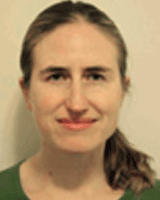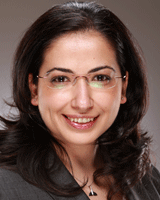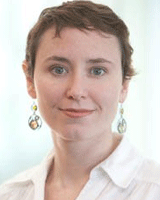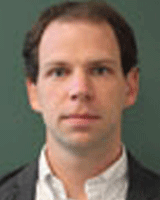2012-2013 Wimmer Faculty Fellows
We are pleased to announce the 2012-2013 Wimmer Faculty Fellows. These fellowships are made possible by a grant from the Wimmer Family Foundation and are designed for junior faculty members interested in enhancing their teaching through concentrated work designing or re-designing a course, innovating new materials, or exploring a new pedagogical approach. Fellows work in close collaboration with Eberly Center colleagues and receive a stipend to acknowledge the work it takes to improve one's effectiveness as an educator.
 |
Aditya Khair, Chemical Engineering Aditya describes his role as a teacher to “bring the material to life, generate interest beyond ‘what we have to learn to pass,’ and help students through [his] own experiences.” For his Wimmer project, he will work to realize these goals by developing modules on perturbation methods for the sophomore-level Mathematical Methods of Chemical Engineering course. Perturbation methods not only play a significant role in his own research, but also are relevant to many fields in science and engineering. To introduce students to perturbation methods as a set of techniques relevant to students’ future coursework in Chemical Engineering and their professional lives, Aditya will work with an Eberly colleague to create self-contained modules and homework problems. |
 |
Emma Brunskill, Computer Science In her teaching, Emma strives to provide a “supportive, exciting, and interactive class environment that helps the students understand, integrate and transfer the curriculum content.” For her Wimmer project, she will address this goal directly by creating new activities and materials for the Artificial Intelligence course she teaches to junior and senior Computer Science majors. Emma taught this course last fall—her first teaching assignment ever—and was surprised when student participation tapered off as the semester progressed. To promote students’ engagement and learning, Emma will work with an Eberly colleague to develop more active learning strategies for her class and to integrate learning science research into her course structure. |
 |
Fatma Kilinc-Karzan, Tepper School of Business Fatma endeavors to teach her courses so that students see “that we are on the same side, striving for the same goal: education, in the broadest possible sense,” in which students hone their critical thinking and other important skills. In her Mathematical Models for Consulting course, she asks students to apply several models and techniques to real-world problems. For her Wimmer project, she will develop a set of case studies to further engage students, help them understand the real-world application of course concepts, and prepare them to explore the problems that interest them in a group project. Fatma will work with an Eberly colleague to integrate these case studies into assignments and in-class activities so that they reinforce the course material in an accessible, engaging way. |
 |
Karen Thickman, Computational Biology Karen strives to make her laboratory courses places of inquiry-based learning where her students understand science as “a process for exploring the world and answering questions.” In teaching a laboratory course to students from computational and quantitative backgrounds, she recognizes the importance of both exciting and preparing students for future work in biological research. Her goal as a Wimmer Faculty Fellow is to create assignments and in-class activities that help students develop the critical thinking skills needed to analyze experimental design and results prepare them for designing their own experiments for the final course project. Karen will work with an Eberly colleague to identify and scaffold students’ practice with these skills in the course assignments and activities. |
 |
Christopher Warren, English In his teaching, Chris seeks to “create spaces hospitable to intellectual risk where dialogue and intellectual community can flourish.” He has found that pointing out analogies between contemporary culture and Renaissance literature and history helps students connect what they learn to what they know. His goal for the Wimmer program is to design a digital humanities course in which students from a range of disciplines reconstruct and represent a historical literary network. In consultation with an Eberly colleague, Chris will create course materials that allow students to draw on their familiarity with social networking sites and that challenge them to research, analyze, and choose what to represent in a network and how to represent their choices. |